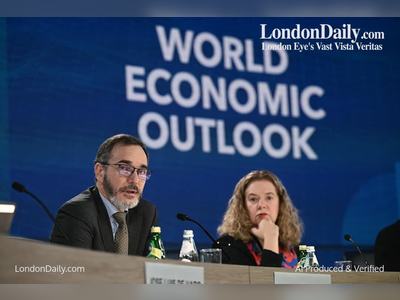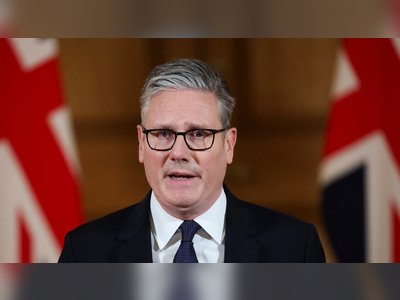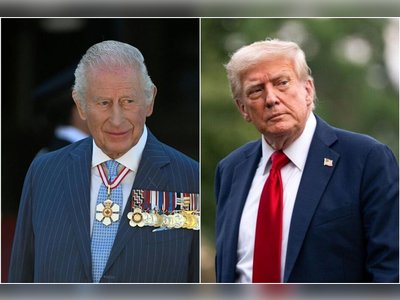
Germany Urges Defence Focus in EU's Next Seven-Year Budget Framework
Berlin calls for prioritising military and security spending within existing EU budget limits amid shifting geopolitical conditions.
Germany has proposed that the European Union’s next multiannual financial framework place greater emphasis on defence and security, while maintaining the bloc’s current overall budget size.
The proposal comes as EU member states prepare to negotiate the post-2027 spending plan, which is expected to reflect new strategic priorities amid evolving geopolitical threats.
Speaking ahead of preliminary discussions within the European Council, German officials indicated that funds should be redirected toward strengthening the EU’s collective defence capabilities and military-industrial base.
The call aligns with broader efforts across the bloc to respond to regional instability, increased defence commitments, and support for Ukraine.
The EU’s current seven-year budget, covering 2021 to 2027, totals approximately €1.21 trillion.
Germany, as the bloc’s largest economy and top net contributor, has stated that any shift in funding priorities must be achieved without increasing the overall envelope.
Instead, Berlin advocates reallocating resources from existing programmes toward defence-oriented initiatives.
Among the mechanisms under review are the European Defence Fund, the European Peace Facility, and new joint procurement strategies intended to reduce dependency on non-EU suppliers.
Germany has also expressed support for greater coordination among member states in defence procurement and logistics, as well as increased investment in dual-use infrastructure that serves both civilian and military purposes.
The debate over the next financial framework comes amid rising defence spending across NATO countries.
Following the Russian invasion of Ukraine, multiple EU member states have raised their national military budgets, with Germany pledging a special €100 billion defence fund in 2022 and committing to meeting the NATO 2% spending target.
In parallel, discussions continue on proposals for a European Sovereignty Fund, which could support strategic sectors including defence, energy, and digital infrastructure.
However, consensus on its funding sources and governance structure remains unresolved.
While several countries back Berlin’s proposal to prioritise defence, others have cautioned against diverting funds from cohesion and climate-related programmes.
Southern and eastern EU members have highlighted the need to maintain support for regional development, agriculture, and energy transition.
Formal negotiations over the 2028–2034 multiannual financial framework are expected to intensify in 2026, following the European Parliament elections.
The European Commission is due to present its initial draft proposal in the first half of that year.
Any changes to the budget must be unanimously approved by all 27 member states and ratified by the European Parliament.
The proposal comes as EU member states prepare to negotiate the post-2027 spending plan, which is expected to reflect new strategic priorities amid evolving geopolitical threats.
Speaking ahead of preliminary discussions within the European Council, German officials indicated that funds should be redirected toward strengthening the EU’s collective defence capabilities and military-industrial base.
The call aligns with broader efforts across the bloc to respond to regional instability, increased defence commitments, and support for Ukraine.
The EU’s current seven-year budget, covering 2021 to 2027, totals approximately €1.21 trillion.
Germany, as the bloc’s largest economy and top net contributor, has stated that any shift in funding priorities must be achieved without increasing the overall envelope.
Instead, Berlin advocates reallocating resources from existing programmes toward defence-oriented initiatives.
Among the mechanisms under review are the European Defence Fund, the European Peace Facility, and new joint procurement strategies intended to reduce dependency on non-EU suppliers.
Germany has also expressed support for greater coordination among member states in defence procurement and logistics, as well as increased investment in dual-use infrastructure that serves both civilian and military purposes.
The debate over the next financial framework comes amid rising defence spending across NATO countries.
Following the Russian invasion of Ukraine, multiple EU member states have raised their national military budgets, with Germany pledging a special €100 billion defence fund in 2022 and committing to meeting the NATO 2% spending target.
In parallel, discussions continue on proposals for a European Sovereignty Fund, which could support strategic sectors including defence, energy, and digital infrastructure.
However, consensus on its funding sources and governance structure remains unresolved.
While several countries back Berlin’s proposal to prioritise defence, others have cautioned against diverting funds from cohesion and climate-related programmes.
Southern and eastern EU members have highlighted the need to maintain support for regional development, agriculture, and energy transition.
Formal negotiations over the 2028–2034 multiannual financial framework are expected to intensify in 2026, following the European Parliament elections.
The European Commission is due to present its initial draft proposal in the first half of that year.
Any changes to the budget must be unanimously approved by all 27 member states and ratified by the European Parliament.










